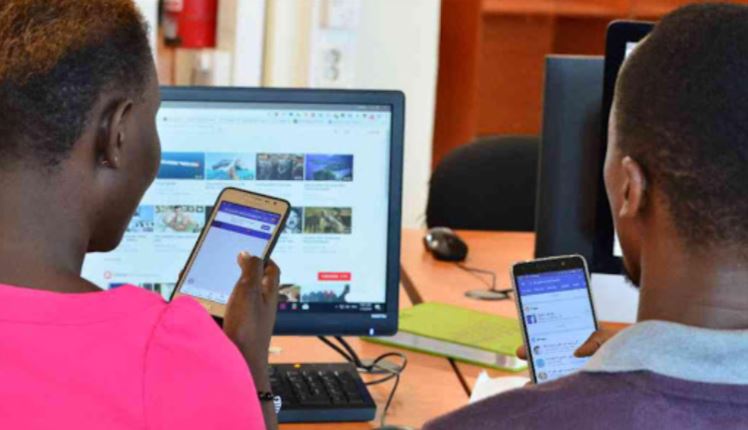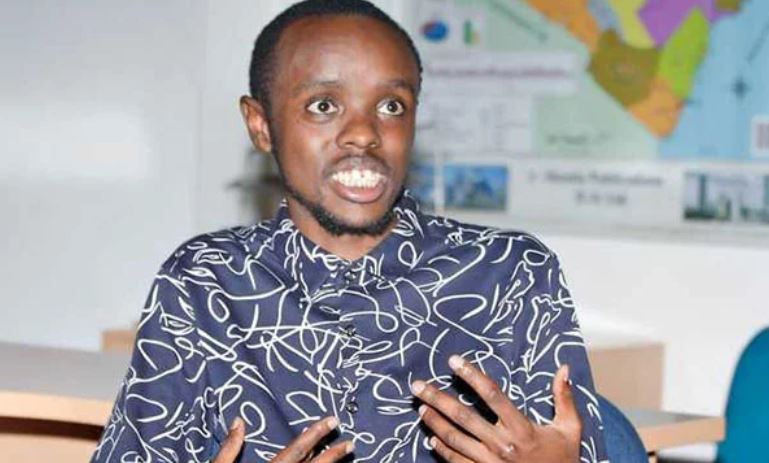
In recent years, however, it has become crucial that one is mindful of what they share online as it could land you in trouble with the law or even cost you a job.
Two young Kenyans spoke to Nation’s myNetwork about how they conduct themselves online and what they think of employers who scrutinise candidates’ social media profiles before hiring them.
JOHN KIONGO, 22
STUDENT, TECHNICAL UNIVERSITY OF KENYA
I use the Internet a lot. In the past, I had an online job where I provided content on Fiverr and Upwork. Nowadays, look out for job and internship opportunities online. My biggest tool to learn new skills, for entertainment and for social interactions is the Internet. I spend most of my time on Twitter.
There isn’t a big difference between my real life and how I portray myself online. In fact, my Internet profiles accurately reflect who I really am.
I am an introvert, but online I have a more outgoing personality. On that space I freely express my views on current affairs, politics, sports, technology and environmental issues.
People may not agree wholly with some of the opinions I have expressed on the intranet, but I doubt I have crossed anyone’s line. I recently heard that in order to get a visa to the United States, one will be required to provide all their social media accounts for scrutiny.
That scared me a little because in my previous tweets, I have criticised US President Donald Trump. If my activity were to be unearthed, then I could be barred from visiting the country.
I think employers should not judge people by what they say online. If someone posted an opinion about a certain brand five years ago, for instance, it shouldn’t be used against them. Five years is a long time. It is possible that the individual has since formed a different, more informed opinion about the brand.
If I ever found myself being interviewed for a job in an organisation I had criticised before online, I would stand my ground. After all our opinions about people and organisations are shaped by what we know about them at that time. An organisation can’t afford to lose talent simply because someone criticised them online, possibly from a point ignorance.
Every day I am conscious of what other people might say about me online. We are beyond the era when social media was used merely for informal interactions. Our social media accounts have become a rich source of information about us, and more and more employers are digging for information from them. This is an indication that tactics are changing. So, I don’t take lightly what my online friends say about me.
An organisation should only be tough on individuals who post extremist views on religion or ethnicity online. This would help the organisation to clarify its position on these issues.
To me, online branding is a powerful tool to promote one’s presence on the web. I have posted my works online and even shared my contact details just in case someone might want to reach out with a job offer.
JUNE MWOLOLO, 21
STUDENT, STRATHMORE UNIVERSITY
I use social media to interact with my friends and family. I am mostly active on WhatsApp, although I try to limit the amount of time I spend on social media.
Someone once asked me why I followed so many people. I hadn’t thought about it critically, but the person explained to me that by associating with a specific personality or brand, I endorse their ideals and activities. He explained that this could affect my reputation. From that time, I have become more mindful of what I do online, and who I follow. Since then, I have consistently searched my name online to see who it’s being associated with.
Also, I think what people say and do online is sometimes influenced by popular trends.
If I were an employer, I would want to know what online jobs my candidates have done. Through the freedom of speech that is available on the web, people post things that reveal a lot about them. (more clarity please?) Sometimes people misuse this freedom.
I would, therefore, track potential employees’ online activity as a way of understanding them and their ideals. The success of a business or brand is ultimately anchored on the personnel behind it. To have a glimpse of who I am bringing on board would help me keep troublemakers at bay. If someone comes off as a narcissist, that’s a red flag. I wouldn’t add them to my team. They could disrupt the rest of the workforce.
It bothers me that my social media activity could ruin my professional and social chances. If some undesirable information about me were to come up on the Internet, I wouldn’t know how to control its spread.
However, the temptation to get carried away and speak my mind, especially while using a pseudonym, is very real. To avoid this, I try to spend less time on social media. There are days when I deliberately avoid visiting social media sites.
In a way, I think what people say on social media mirrors their personalities. Online platforms offer users a sense of freedom, and allows them to say just about anything. I have seen people develop double personalities, where they are quite shy in real life but very vocal online. There is this misconception that what people say online doesn’t matter much.
I limit my online interaction to exchanging pleasantries with friends and colleagues and keeping tabs on new developments specific areas of interest.
FRANCIS KINUTHIA, 26
ACCOUNTANT
I stopped being active on social media, specifically WhatsApp. I belong to different WhatsApp groups, but only to get information and entertainment.
I don’t have digital dirt besides two photos I posted on Facebook six years ago involving my friends and I on the swimming pool. Sometimes back, I had trouble trying to clear my name on a WhatsApp group where members thought I was into sex toys. It took a lot to convince otherwise.
I wouldn’t pull anything down from my online profile. Every post I’ve made was for a reason. Other than sharing photos of my boyfriend, I keep everything else private.
I wouldn’t be entirely comfortable if a potential employer tracked my online activity. Social life and professional life shouldn’t mix. Not that I have anything to hide, but I’d prefer if what I do in my private life remained private.
I have never lost an opportunity because of a post or comment I made on social media. I only engage in conversations I am passionate about and avoid controversy and confrontations at all costs. I am, however, very candid. I speak out my mind on any issue. This sometimes leads to conflict, but I try to argue with objectivity.
Additional Reporting by Nation.co.ke









